Six Reasons Why the Workplace is the Perfect Place


For many people the workplace is the first place, and it may be the only place, where they interact with other people who are different from them – racially, ethnically, religion. We, the coauthors, met in the workplace more than two decades ago. It is likely our paths never would have crossed otherwise.

The second reason why we believe the workplace is one of the best places to advance racial equity is it is a ready-made coalition. On a daily basis, hundreds of people, thousands, tens of thousands come together to collaborate on advancing common goals – products and services they develop and market. Why not use that existing dynamic to advance organizational racial equity?
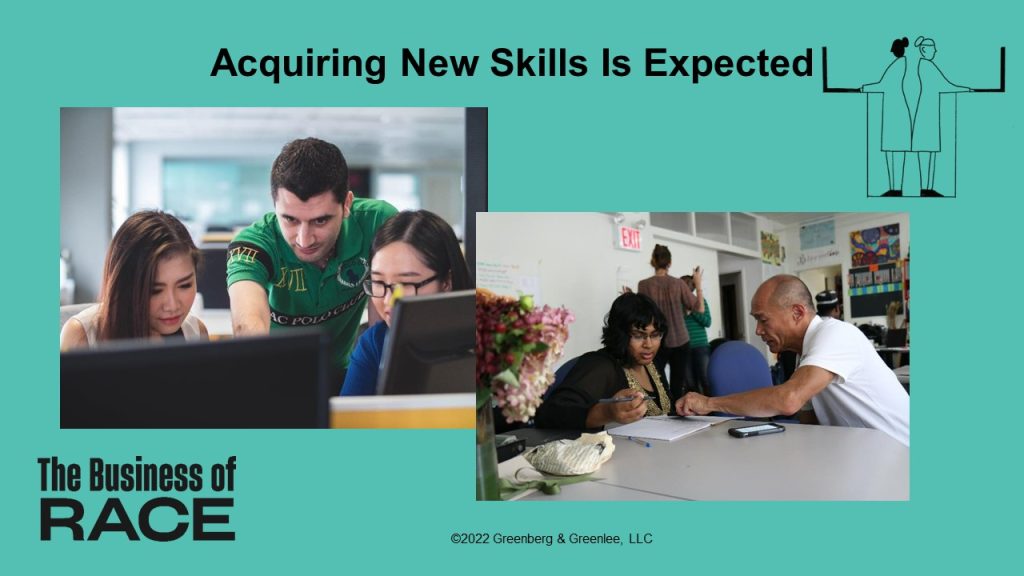
The third reason why we believe the workplace is one of the best places to undertake this work: it is an area of society where acquiring new skills is expected. Organizations to remain relevant in their industries, and individuals to remain employable requires continuous learning and growth. The ability to constructively navigate a multicultural workplace is a 21st century competency.
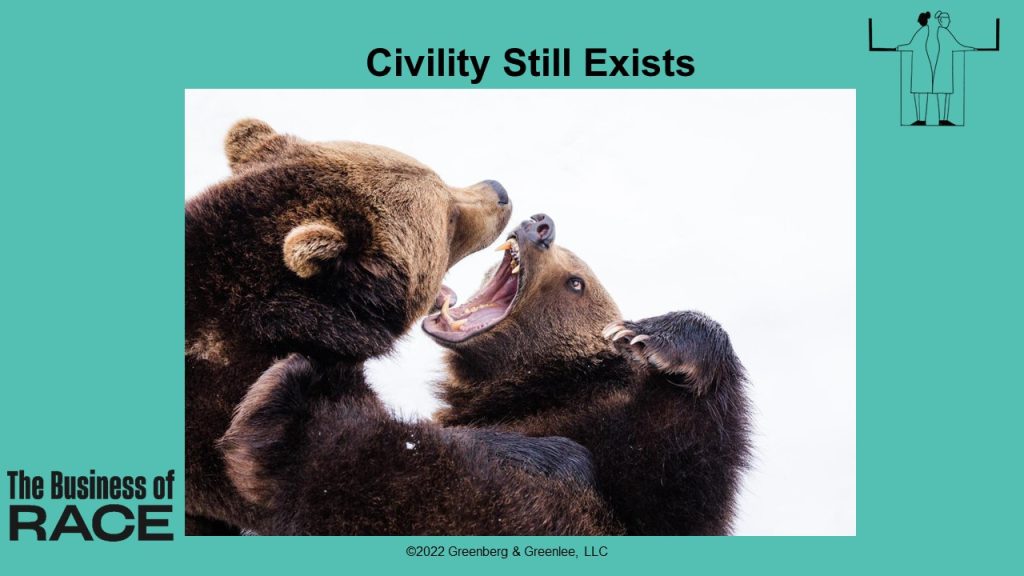
The workplace is one of the few places in society where civility still exists. Try to discuss race or racism while in line at the coffee shop, and the exchange is likely to deteriorate or escalate. Organizations, by contrast, have norms that guide behavior. These norms allow workplaces to constructively engage their existing, ready-made coalitions as they grapple to advance common business goals. This includes reimagining business policies and practices to advance racial equity.
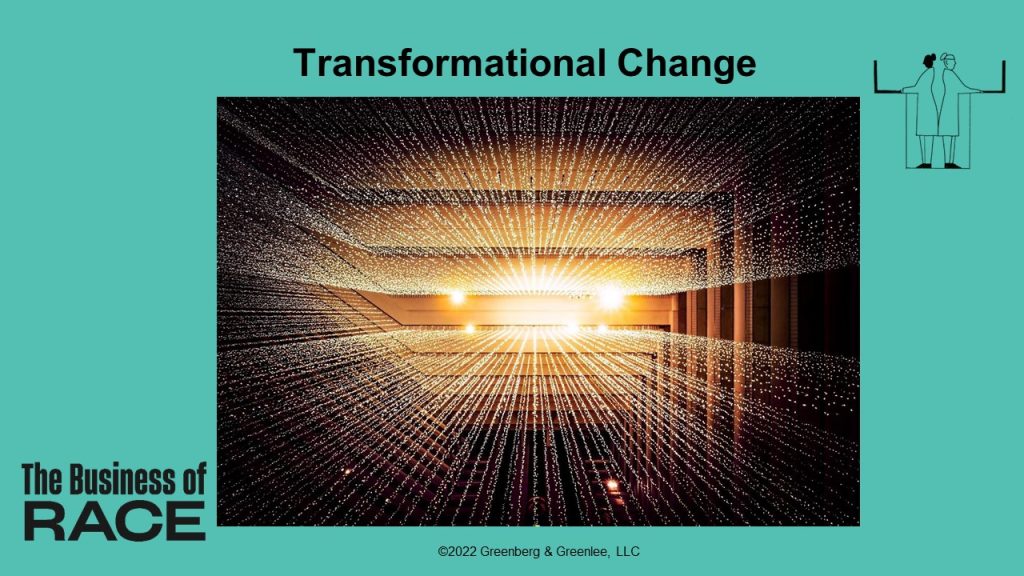
Historically, the workplace has been a domain for transformational societal change. From the industrial revolution to the digital revolution, businesses have led not only how we work but also how we live. We’ve seen that most recently during the Covid-19 pandemic. In many cases, organizations were well ahead of government in protecting employees through remote work practices.
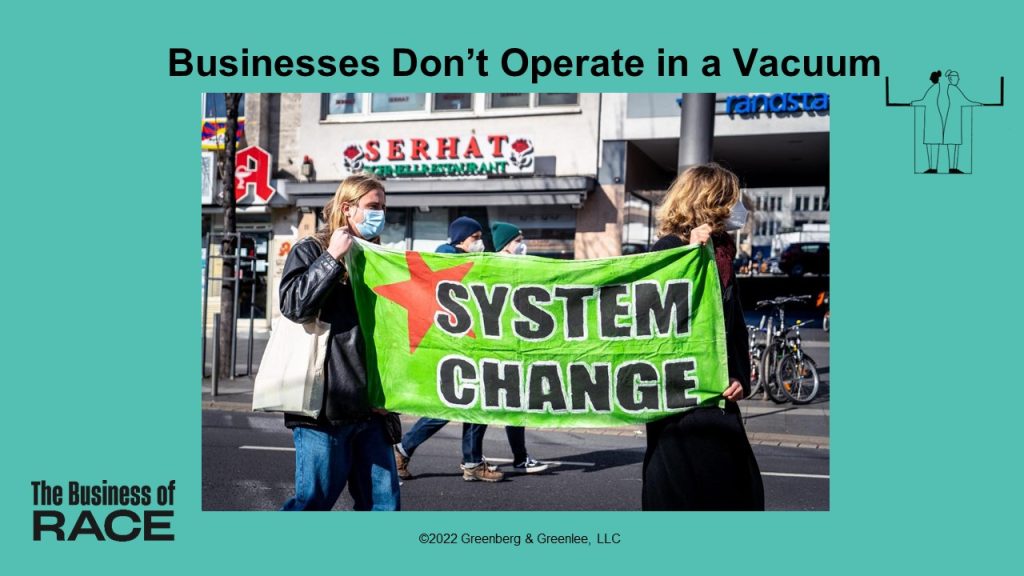
A bi-directional influence exists between society and the workplace. As we mentioned above, most recently the work world experienced this firsthand during the pandemic. Also, the murder of George Floyd spawned a global awareness of racial inequities between the people of the global north and the global south – in the workplace and beyond. Just as businesses do not operate in a vacuum, neither do employees. They bring their full lived experiences to work.
Businesses are capable of leading another transformational change: advancing an antiracist society. It starts with setting as a strategic business priority, an antiracist workplace.
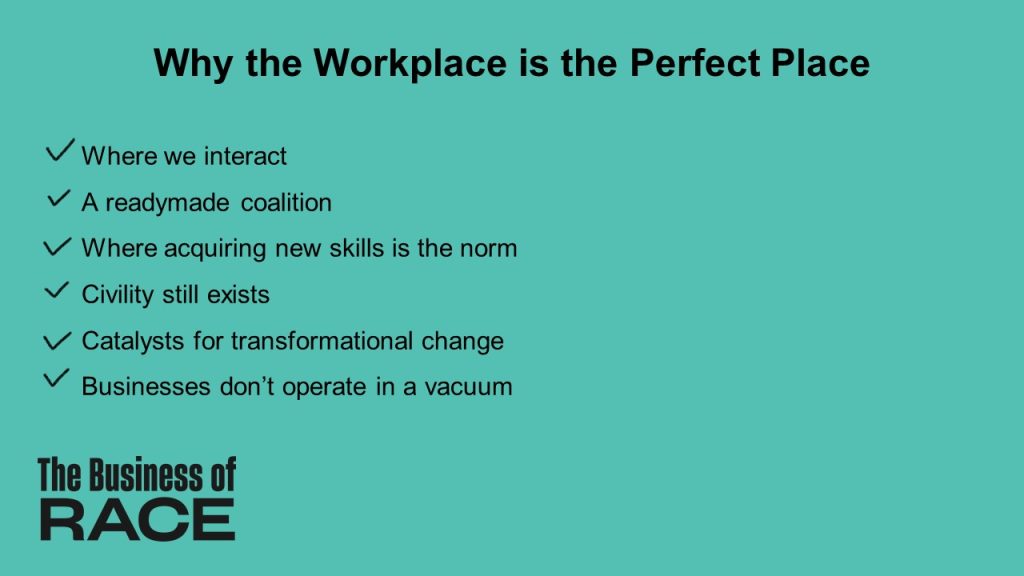
Reflection Questions
- How have current events impacted your life? Work? Where in the world you live?
- How racially diverse are the people you connect with professionally?
- How racially diverse are your relationships outside of work? How comfortable are you talking about race and racism at work? With friends? With family members? If you are uncomfortable, what dynamics need to be present for you to feel safe?
- Outside of work, when have you come together with people different from you for a shared purpose? What was the experience like? What learning can you bring from the experience to race work at your
company? - When was the last time you acquired a new skill at work? In other areas of your life? What was the learning experience like for you at the time? How do you feel about it now?
- How relevant do you find the six reasons we cited for why the workplace is the perfect place to discuss race and advance race work?

